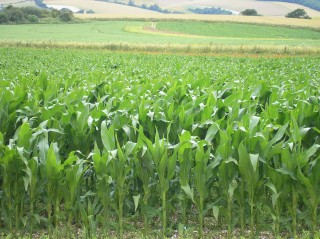The first thought that comes to the mind of many Nigerians whenever Niger Delta is mentioned is either ‘oil’ or ‘militancy’, and sometimes both. For a very long time, conversations about the region have bordered on those two words. However, there has been little focus on what agriculture is capable of helping the people of the region achieve.
There are nine oil-producing states in Nigeria which constitute the Niger Delta region. They include Rivers, Abia, Akwa Ibom, Bayelsa, Ondo, Cross River, Delta, Edo, and Imo. More than 40 percent of the residents engage in peasant agricultural practices to earn a living. Notwithstanding, agriculture has been under-explored due to the reliance on the ‘easy’ money that comes from oil and the excuse of unfavourable farming conditions in the area.
“When we describe the Niger Delta most times, we describe it as creeks but that is not the case. There are nine states in the Niger Delta, and out of the nine, there are only three or four that have large swamps,” the Executive Director of the Foundation for Partnership Initiative in the Niger Delta (PIND), Sam Daibo told Ventures Africa at the 2016 Niger Delta Development Forum (NDDF).
Speaking further about the Niger Delta region, Daibo said, “We have a population close to 32 million people. Agricultural activities engage about 45 percent of the population, how do we increase their productivity? How do we transform the region from just an oil bearing region to a region where other commodities are generated? For me, that is what I have been looking at and hoping to achieve with the NDDF.”
The lucrative business of oil production has been the vogue in the region for a very long time but only a few people involved are beneficiaries. Apart from the state administration (government) that gets a direct budgetary allocation from the federal government, only a few rich people from the region are involved in the oil business. Despite the fact that the Niger Delta people are meant to enjoy the dividends of the natural resources, it can be said that wealth isn’t properly distributed among the people in the area.
In 2000, barely a year after former President Olusegun Obasanjo assumed office, the Niger Delta Development Commission (NDDC) was created with the utmost intention of developing the region and empowering the people. Unfortunately, the commission hasn’t lived up to expectation.
In the 2009 World Development Report that focused on regional inequality and the Niger Delta, Kate Higgins wrote that “the development of the Niger Delta since the NDDC was established shows that poverty reduction progress has been slow, particularly given the Niger Delta’s substantial natural resource endowments and additional federal government resources.”
Basically, most vices seen in the oil producing region, including militancy are products of the failure of the proper empowerment of the people of the region. Even the rampaging militants in the area have failed to identify and recognize other viable means that can drive better development in the region, and at the same time ‘decentralize’ the wealth among few people.
Considering the large expanse of arable land available in the Niger Delta region, investment in agriculture that will result in increased levels of production has not been given enough attention. Despite complaints of land and water pollution, the cultivation of crops like cassava, cocoa, and rice is very feasible in many areas of the region.
Aquaculture–cultivating aquatic animals such as catfish–is a lucrative business that doesn’t require too much capital. There are also other businesses that do not need a huge capital to start off, unlike the oil business that is accessible to only a few people–the very rich ones.
In 2014, PIND recommended that “the board of the initiative should consider policy designs that encourage and integrate youth into the agriculture sector. An increased focus on youth will meet the goals of youth employment, poverty reduction, and food security.”
The government has promised to clean up the oil spillage in the Niger Delta. It will be wise if rampaging militants channel their energy towards putting the government on its toes to deliver on this promise as against the current violent destruction of national assets.
With the clean up achieved by the government, farming will be easier and less vulnerable to environmental concerns. In fact, modern technologies in the agricultural line, which can now be the input of international organizations and state governments, can mitigate the effects of these pollutants on agricultural production in the region, thus giving rise to good production.
“We need to step up and say this is our region and this is what we need to do as a people looking at the resources we have. We need to look at how to use what we have to move forward and not blame somebody else for the issue that we have in the region,” said Daibo.
As it stands, there are indications that wealth will not be distributed among most Niger Deltans if oil remains the focus. Agriculture is an unexplored goldmine that needs to be taken seriously by the people of the region, particularly the youth. It is easier and more feasible to empower people through agriculture than through the oil business.
Additional reporting by Fumnanya Agbugah
Podcast: Please listen to Ventures Africa’s Exclusive interview with Sam Daibo for more insight








